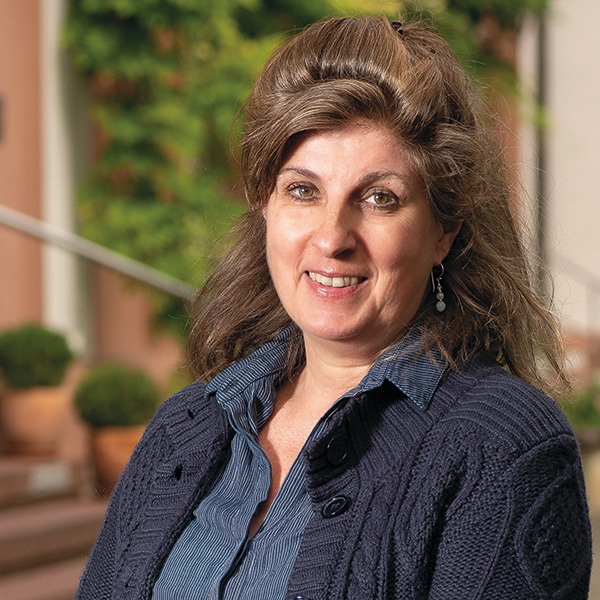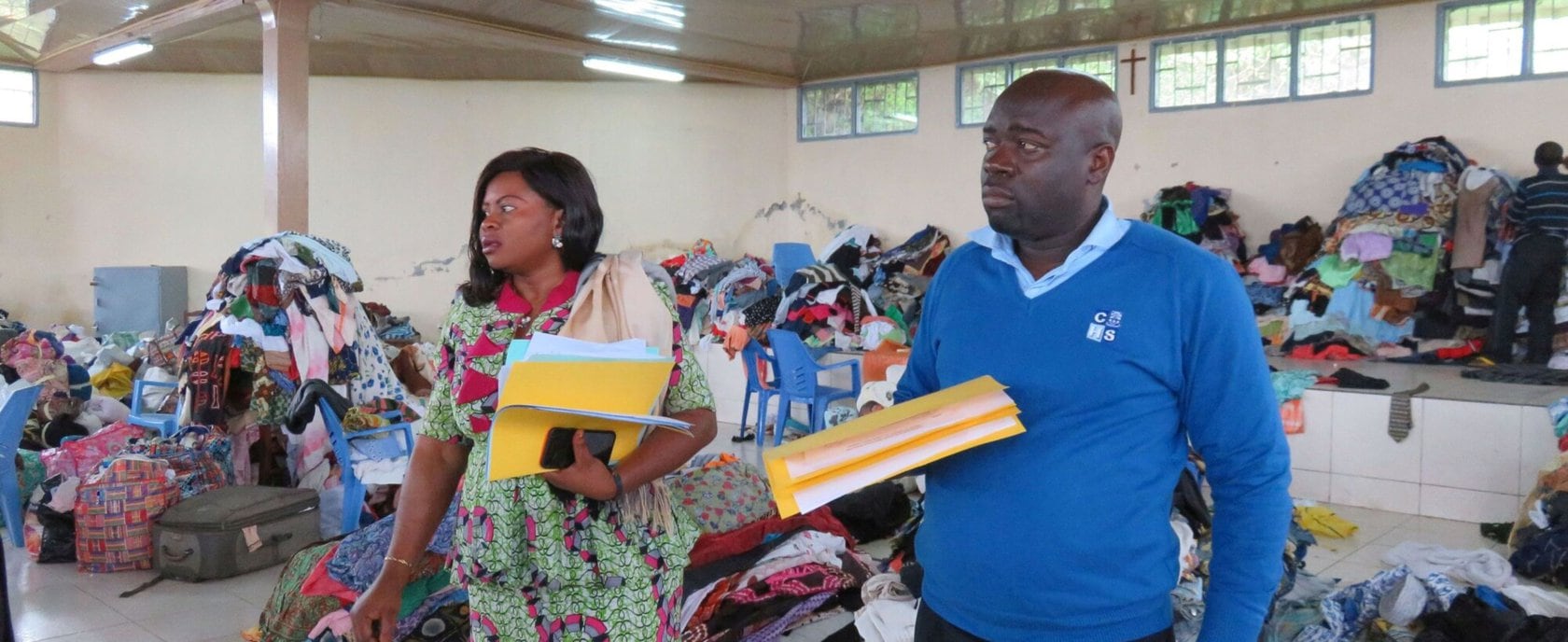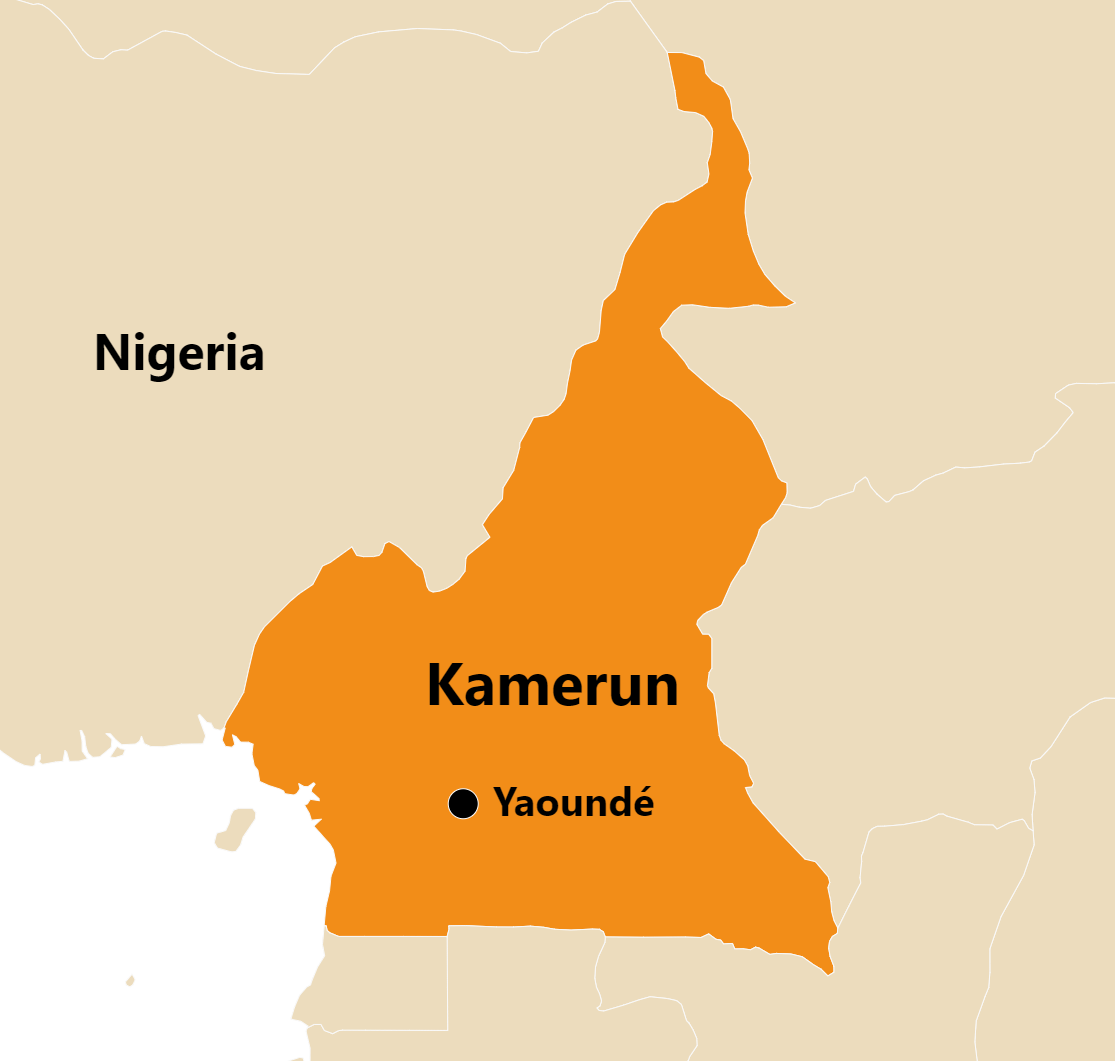
Jacqueline Brunner
Team leader church partnerships
Tel. 061 260 23 37
► E-mail

Project Number: 134.1003
A conflict between the Cameroonian central government and the Anglophone population in the west of the country has been escalating since fall 2016. 2.3 million people are dependent on aid. The Cameroonian churches and local NGOs have great potential to contain the conflict and support the people in need, as they are anchored and accepted by the population. Mission 21's emergency aid and reconstruction project is working with them in a sustainable humanitarian aid program under the overall coordination of UN-OCHA.
The background to the conflict lies in the colonial era. Cameroon is made up of a larger francophone and a smaller anglophone area. A federal system was abolished in 1972 in favour of a centralized system. Since then, the Anglophone minority has felt marginalized and disadvantaged. In 2016, the conflict escalated during a strike by teachers and the judiciary. The central government reacted harshly to demands for more equality. Meanwhile, separatist groups are calling for an independent Anglophone state of "Ambazonia", which is being opposed by the central government. According to official UN figures, over 628,000 people have fled to forests, provincial capitals or Francophone Cameroon, while 420,000 have returned to their often completely destroyed homes. At least another 60,000 people have fled to Nigeria, while others remain in the conflict zone.
The churches play a central role in dealing with the conflict: they stand up for the disenfranchised Anglophone population, work for peace and are the driving force behind humanitarian aid. Immediate emergency aid is increasingly being supplemented and replaced by rehabilitation measures such as trauma healing and training. The consequences of the conflict will be felt for a long time to come.
Due to the ongoing crisis in the Anglophone regions, the focus of humanitarian aid is shifting from vital emergency aid in the form of food aid, medical care and the distribution of tents, blankets, hygiene items, etc. (so-called non-food items) to activities that give internally displaced persons a new perspective on life. Direct aid is still necessary, but is increasingly being supplemented by training and educational measures. The issue of trauma healing is becoming increasingly important. Many of those affected are severely traumatized by their experiences and need psychosocial support in order to regain their footing.
The humanitarian aid of Mission 21's emergency relief and reconstruction program is aimed in particular at people with trauma as well as women and children who have been displaced and are most affected by the ongoing conflict.
Based on a recent United Nations survey, Mission 21 is engaged in Cameroon's northwest and southwest regions. Depending on the further development of the conflict and the humanitarian situation, the focus of the aid program may shift over time.

28.6 million inhabitants
658,000 people are on the run because of the current conflict
489,000 try to return to their home country
Dependent on donations without a regular budget
Mission 21
Protestant Mission Basel
PO Box 270
Missionsstrasse 21
4009 Basel, Switzerland
Tel.: +41 (0)61 260 21 20
info@mission-21.org
Donation account Switzerland:
IBAN: CH58 0900 0000 4072 6233 2
Tax exemption number:
CHE-105.706.527
Donation account Germany:
Savings Bank Lörrach-Rheinfelden
Swift BIC: SKLODE66
BLZ: 683 500 48
IBAN: DE39 6835 0048 0001 0323 33
Account No. : 1032333